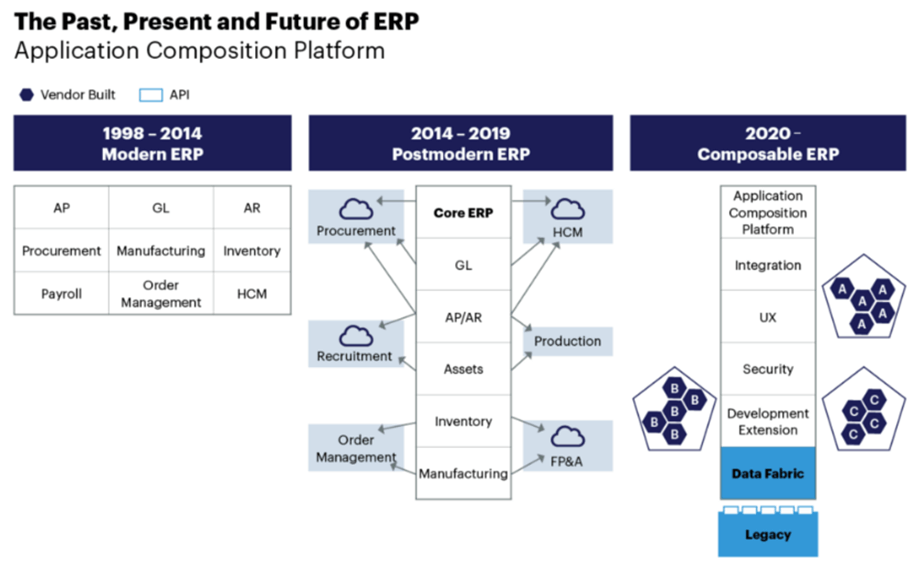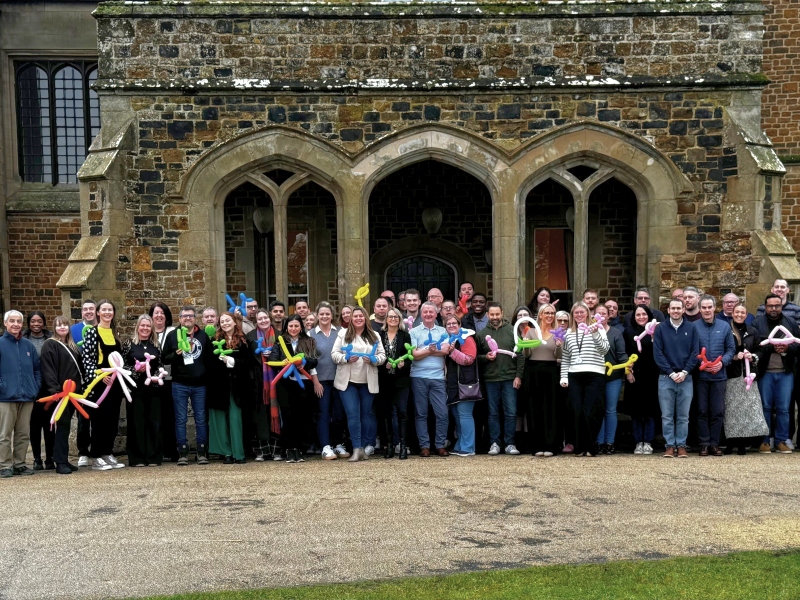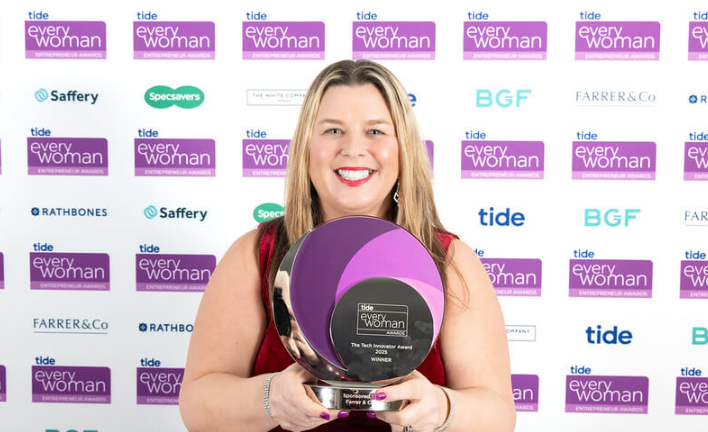Embridge Consulting redefines business transformation with a new emotionally intelligent, ‘elastic’ approach
Composable ERP: Integration is everything
ArticleMarch 20234 min

The story of Enterprise Resource Planning (ERP) systems is one that has long been told. Gartner originally coined the term back in 1990.
With origins in monolithic, on-premises installations; long deemed unsuitable for modern business, ERP’s journey took to the cloud, via desktop and mobile apps. Its postmodern phase (a term again coined by Gartner in 2013) saw a hybrid approach consisting of on-premises and cloud-based applications. The emphasis was to move away from the single-vendor model.
But the narrative isn’t ending there. With a 12.3% compound annual growth rate predicted in the global ERP software market this year, ERP’s next chapter is being written – Composable ERP.
With Gartner reporting that realising an ERP system’s true benefit is still being hampered by a vendor-centric approach, ‘Composable ERP’ is the next step. It’s defined by them as “an adaptive technology strategy for building a foundation of administrative and operational capabilities that lets organisations respond more quickly to changes in the business environment.”

While postmodern ERP was also characterised by ‘best of breed’ technology supported by an agile model, customisations and integrations, composable goes beyond that. It promotes a cloud-based, vendor agnostic architecture designed to meet specific business requirements, including adopting a wider ecosystem of applications.
The concept of integrating almost any combination of applications, multiple clouds and a range of services provides huge opportunity. But the reality presents several challenges that need to be overcome in order to fully benefit from a composable approach.
Mindset Shift
ERP ownership has traditionally been siloed, often either sitting with finance or IT. In the composable ERP era, this will have to become much more collaborative. Business and ERP strategies will need to be aligned, both in the selection and planning stages.
The way businesses approach running and maintaining their ERP systems in the longer term will also need to change. The composable ethos means that, rather than designing a system to ‘last’ and cover all eventualities, you will need to design a system in anticipation of change. The reluctance to make changes will need to be replaced by teams embracing tools to support regular updates and minimise disruption during those changes.
The right skills and support
As teams adopt the composable ERP approach, they’ll need to make sure they have the right skills in place, for example knowledge of the platform and interoperability tools. Skills to support data structure and standards will also be necessary to ensure the smooth passage of business data across the different components.
System support will need to be as flexible as the system being designed, as well as being scalable. With multiple moving parts and connections, support will have to be much more pro-active than has traditionally been the case, engaging with the business to mitigate possible downstream issues. Rather than just supporting a single application from one vendor, broader IT knowledge and understanding the impact of system changes on the wider business will be needed.
Complex integration
The move from an individual application to a much broader ecosystem, coupled with the need for data to be consistent, accurate and available across multiple components, means integration sits at the heart of composable ERP. Composable ERP promotes an architecture built for launching web services and leveraging APIs. APIs are then used to provide solutions that support pre-defined business capabilities. Without a robust integration strategy, any sort of ERP implementation is likely to prove unsatisfactory in terms of business change and return on investment.
Recognising the shifting landscape, ERP vendors are increasingly evolving their architectures to be more open, even introducing APIs to support custom integrations and additional capabilities. As an example, Unit4 have introduced their People Platform Extension Kit that will empower customers and partners to build services and small apps in the areas that matter, connected to their enterprise applications, allowing them to break away from the monolithic nature of ERP.
With other emerging capabilities and technologies, such as low code/no code tools and AI, business functions will increasingly be empowered to develop their own applications. This means the integration landscape is only likely to become more complex. And those integrations will also have to be managed and maintained to ensure continued delivery and performance. The good news is there are some clever people doing smart things with APIs, webservices and microservices to help businesses transition to this fourth phase.
Over the coming weeks, our technical experts will be providing information, top tips and showcases around building integrations, particularly around Unit4, as well their thoughts on this next phase of ERP, so come back soon and tell your colleagues!
About Embridge Consulting
Embridge Consulting is a leading People-First Business Transformation consultancy, specialising in ERP and Business Change.
With commitment to continual client improvement, we work with clients to help them achieve faster time to value from their digital change programmes, at lower cost with lower risk.



